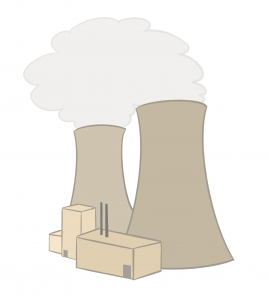
The trend of closing nuclear power plants in Japan and the EU worries me.
In the fight against climate change, we need every tool at our disposal. Everyone knows how bad things could get if we don’t do anything — rising water levels, massive ecological disruption, that sort of thing — so we really cannot afford to hinder ourselves in the process.
Take Germany, for example. This is a country that is far more dedicated to becoming carbon-neutral than the U.S. is, and their public perception of nuclear energy has caused the government to permanently shut down every nuclear plant in the country by 2022. In the meantime, they are filling the gap in their power production with fossil fuels. This is a step backward. The risks of fossil fuel emissions far outweigh the risks of nuclear power.
How do I know this? For starters, there have been far more casualties of fossil fuels (and there will be more, by the time we stop climate change for good) than there have been of nuclear power. The Chernobyl disaster directly caused 31 deaths, with a further 15 dying from thyroid cancer by 2005. According to the UN’s UNSCEAR Chernobyl reports: “Apart from the dramatic increase in thyroid cancer incidence among those exposed at a young age, and some indication of an increased leukemia and cataract incidence among the workers, there is no clearly demonstrated increase in the incidence of solid cancers or leukemia due to radiation in the exposed populations. Neither is there any proof of other non-malignant disorders that are related to ionizing radiation.”
There is no reason to think that nuclear power plants are especially dangerous, considering that technology has improved somewhat in the last 35 years and, unlike Japan, the U.S. has regions that don’t see almost a fifth of the planet’s most powerful earthquakes a year. The biggest threat from nuclear power is, to be honest, the threat of having to move away from them if something goes wrong.
By comparison, a Harvard study published Feb. 9 found that fossil fuel pollution killed more than eight million people in 2018 alone.
As much as I hate to say it, renewable energy is not in a position to completely take over for fossil fuels right now. There’s a lot of time and money required that the world should have invested years ago that simply didn’t happen, and we’re in a worse position because of it. If we want to phase out fossil fuels, nuclear power would only make that happen sooner.
I understand that ionizing radiation is scary. We’ve got whole TV shows dedicated to dramatizing nuclear disasters, so it’s understandable that people are afraid of tremendous life-altering events, especially if they almost never happen. I also have to admit that the scientific community doesn’t have a good track record at making people feel better about things that are potentially-dangerous-but-not-really, considering the stuff you see going around Facebook. That doesn’t mean I can’t at least try to win over the limited audience of this newspaper.
Next Monday, April 26, marks the 35th anniversary of the Chernobyl disaster. I do not intend to say that nuclear power is a perfect system with no dangers — only that the risks of nuclear pollution are low enough that to refuse to use it entirely would cause far more harm than good.


